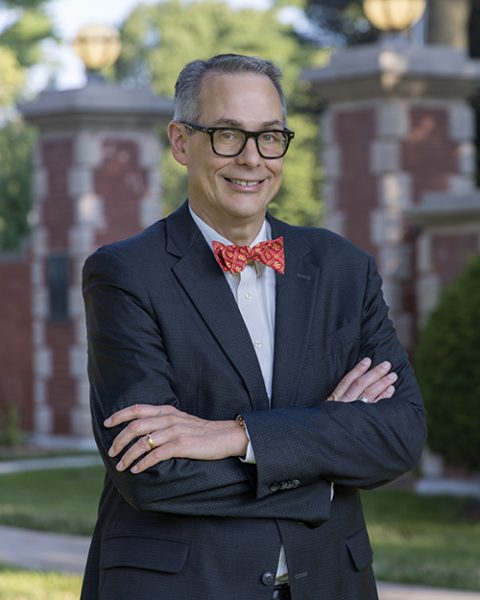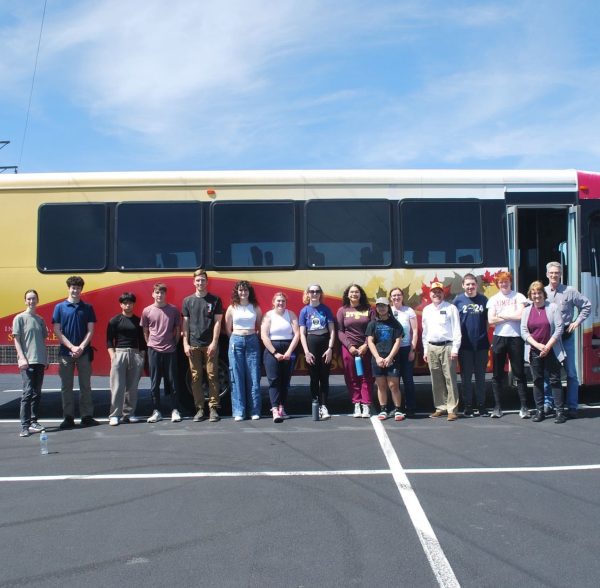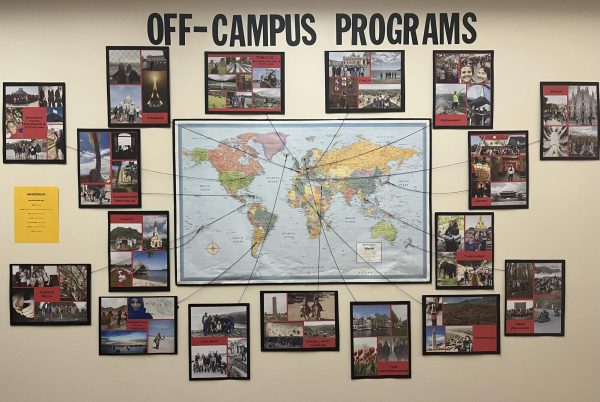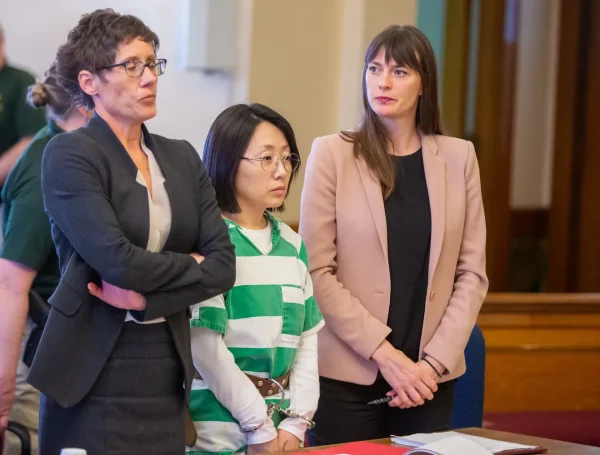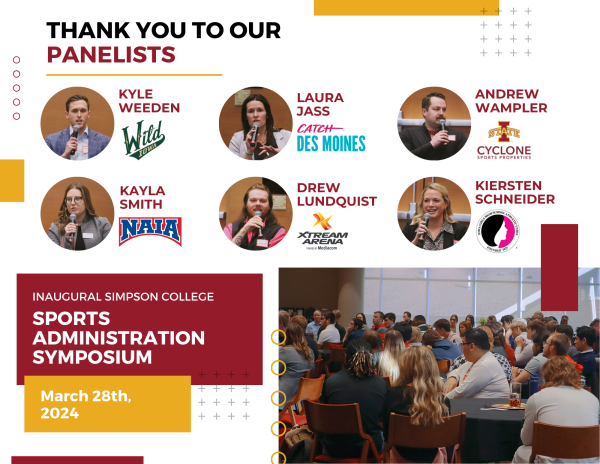Teachers, entrepreneurs: one and the same
March 1, 2016
At “SC Entrepreneurship Symposium: A New American Dream,” a panel of about 20 students, staff and faculty gathered in Hubbell Hall last Wednesday to talk about entrepreneurship.
Some students may imagine entrepreneurship as The symposium turned the image of an obnoxious person in a business suit with a panel behind them saying, “buy me” upside down.
Both students and faculty talked about their various entrepreneurship opportunities and experiences that they handle right now, on top of being professors and busy college students. Aaron Santos, assistant professor of physics, and Ann Woldt, assistant professor of theatre, are working on groundbreaking ideas.
Santos’ project delved into the teeny-tiny world of nanotechnology, the size of a molecule, making working with them both incredibly difficult and impressive. Along with students and assistant chemistry professor Derek Lyons, Santos is working on building a “technology that creates technologies.”
It’s mostly an idea, but they are well underway in the development stage.
“Working with things that small is not very easy,” Santos said.
Even under a microscope, the human eye can’t see nanotechnology. It takes an electron microscope or an atomic force microscope to see it.
He started the idea in graduate school.
“I saw many people that were working on different nanotechnologies, but nobody was really going after the main problem, which was, how do you make anything?” Santos said.
The reason, he said, is because it’s difficult to make things that aren’t circles, squares or other simple shapes out of molecular-sized technology.
According to Ryan Skaar, who has been working with Santos for three years, the team of undergraduates working on the chemistry side includes Dakota Bunnell, Mathew Thompson, Kelly Brass, Dana Bohan, Zack Linderberg, Matt Hayden and Mark Ballard.
“It is a truly unique experience and one that could possibly make a lasting effect on the science and global community,” Skaar said. “Coming in as a freshman, it really opens one’s mind frame and makes one think, ‘Wow I could really be a part of something special here.’”
He also said that it can be time consuming, saying that he believes the research team has put in over 200 hours of lab work.
The students and professors hope to apply nanotechnology to a drug-delivery device, which would be helpful in the cancer field.
To do so, they would build a molecular-sized box to hold medicine, much like chemotherapy medicine, but in higher concentrations. The medicine would only release when it came near cancer cells, so instead of getting incredibly sick and losing their hair, patients would have less side effects, and more effective, stronger treatment.
Science isn’t the only thing that’s taking off, though. Ann Woldt is creating an arts management class.
Art management delves into the business side of art, music and theatre, which are mostly nonprofit businesses. While still in the idea stages, the class will be available to students in every major hopefully within a couple years. This class would give students an opportunity to experience nonprofit businesses and to be able to stay doing what they love, even if they don’t want to perform, according to Woldt.
Woldt has created about five classes at Simpson, and most of them have been successful. They pull most of their students from majors that aren’t theatre, reinforcing Simpson’s interdisciplinary curriculum. This class could change many students’ lives, especially those who feel they have to choose between the arts and practicality.






